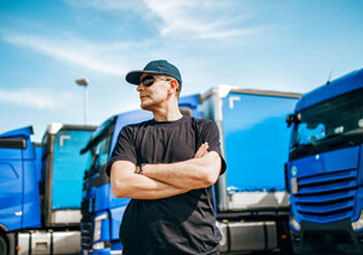Blog
Building Strong Cultures in Transport: Why Recruitment and HR Practices Matter
20 August 2025
At Driveforce, we believe culture isn’t just a “nice-to-have.” In transport, it’s the unseen force that fuels retention, safety, performance, and ultimately profitability. Companies that see hiring as only ticking boxes often face high employee turnover, rising costs, and safety issues. Those that get it right build strong teams that perform well and stay.

What Strong Transport Cultures Have in Common
- Smarter Hiring, Not Just More Hiring
Great operators don’t just fill seats. They use structured interviews, skills-based testing, and proven selection tools. This method screens for both skill and fit, lowering early attrition and costly mis-hires. - Honesty upfront with realistic job previews
Showing candidates the true conditions of the job – including hours, routes, equipment, and customer expectations – leads to fewer surprises and fewer early departures. The result? People who genuinely want the role and remain longer. - Safety at the Heart of Culture
Strong safety systems build trust. Companies that coach proactively and track both leading and lagging indicators face fewer accidents, lower staff turnover, and better performance. In transport, nothing damages culture faster than poor safety. - Giving Drivers a Voice
Anonymous feedback loops that management acts on quickly reduce churn and build loyalty. Drivers who feel respected and heard don’t just stay, they perform better. - Development That Fosters Loyalty
When drivers can advance from Class 2 to Class 5 or obtain and utilise endorsements like Bridge Engineering Self Supervision (BESS) or Practical Rigging, they see a future with the company. Development pathways are retention pathways. - Engagement Where It Counts
Engagement isn’t just a poster on the wall. It depends on frontline leaders, dispatchers, supervisors, and managers who show respect and support their people every day.
The Cost of Poor Culture
Companies that cut corners on hiring and training end up paying for it with:
- High driver churn
- Skills shortages and safety incidents
- Rising recruitment and training costs
- Damaged reputations among customers and industry peers
Poor culture is costly.
From Recruitment to Retention to Performance
The link is straightforward:
- Improved recruitment methods → Better fit and retention → Enhanced performance and safety → Strengthened bottom line.
Ignore this connection, and you’ll remain trapped in the costly cycle of replacing staff instead of growing with them.
Case in Point
- Mainfreight (NZ): Built on a culture-first approach, their people systems prioritise long-term growth, structured onboarding, and internal promotion. Although they were disappointed with their results in the year ended 31 March 2025, it’s clear that the company’s successes are underpinned by its ‘Mainfreight family culture’ with recognition of this at the most senior level. Mainfreight confirms in one of its latest newsletters, “a strong Mainfreight culture will always win above anything else”.
- Freightways (NZ): Processes over 100 million items annually across its operations, including brands like New Zealand Couriers, Post Haste, DX Mail, Big Chill, TIMG, and many more. During challenging economic times, Freightways has prioritised service resilience and consistent performance by cultivating a strong, united culture across its various business units. Mark Troughear, CEO, in his 2024 annual meeting commentary, stated, “We will continue to invest in training our people so 80% or more of our promotions come from within”.
- Micro-learning programs in trucking: Independent studies found that companies investing in mobile-first safety and skills development reduced turnover from nearly 30% to 10%. This was effective because mobile tools made training accessible on the road, offered consistent refreshers, and provided real-time learning that suited drivers’ work routines.
What This Means for Transport Operators
To cultivate a winning culture, operators need to:
- Standardise hiring through structured interviews and job previews.
- Make safety the cornerstone of every decision.
- Listen to the drivers and respond promptly.
- Invest in development and create clear skill pathways.
- Constantly train frontline leaders to be people leaders.
The Driveforce View
Culture in transport or any business isn’t just fluff; it’s a vital part of strategy. It forms the foundation for retention, performance, and profitability. At Driveforce, we embed this philosophy into everything we do. By combining structured, honest recruitment with people-first HR practices, we help our clients build stronger, safer, and more sustainable teams.
Because when culture succeeds, the whole business succeeds.
Brent Mulholland
Founder & Managing Director | Driveforce Limited
Email: support@driveforce.co.nz
MBL: 027 762 6677
